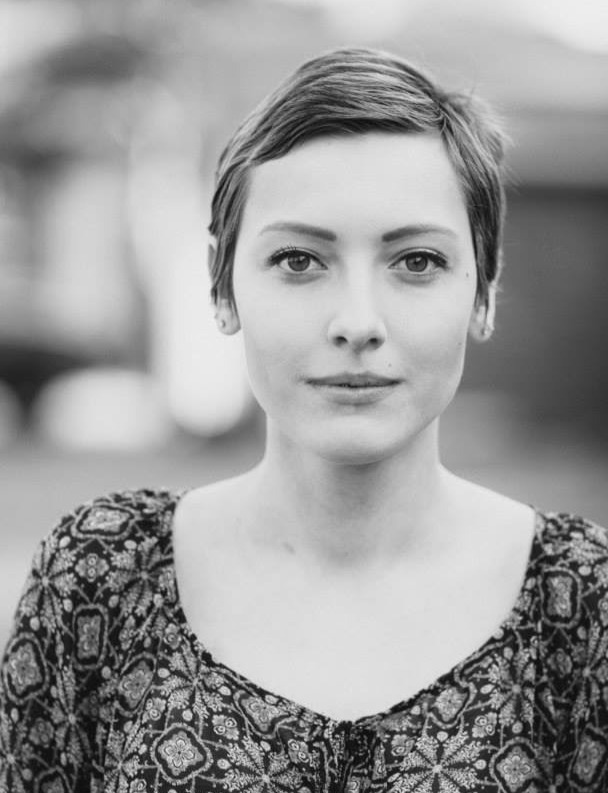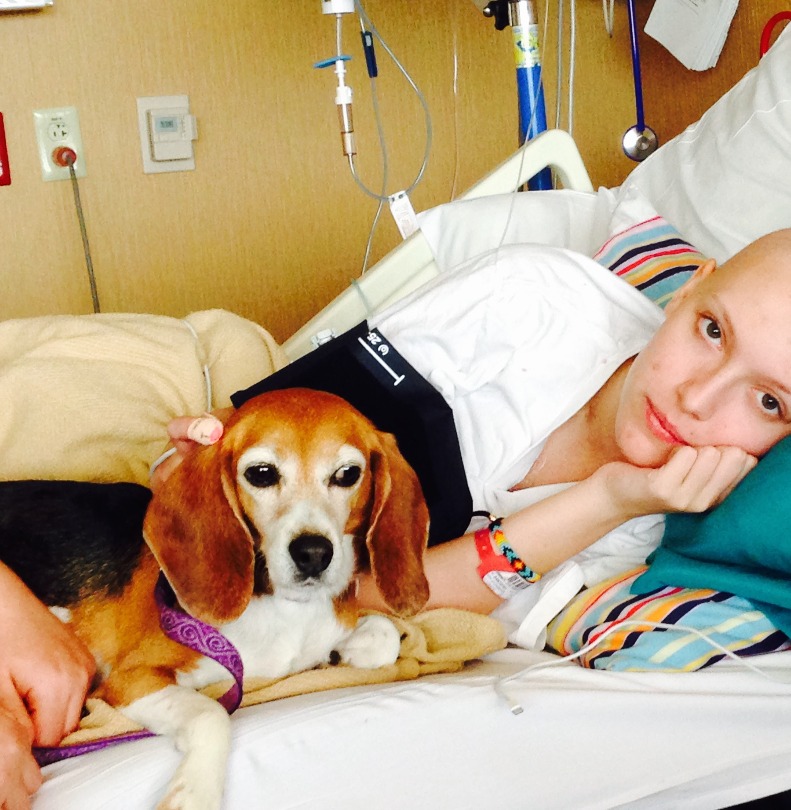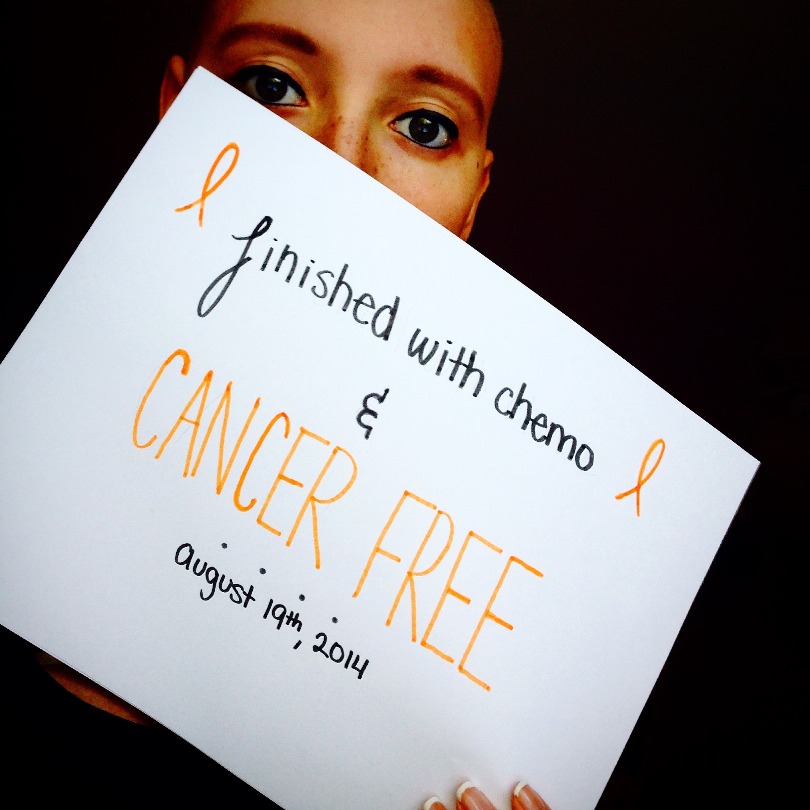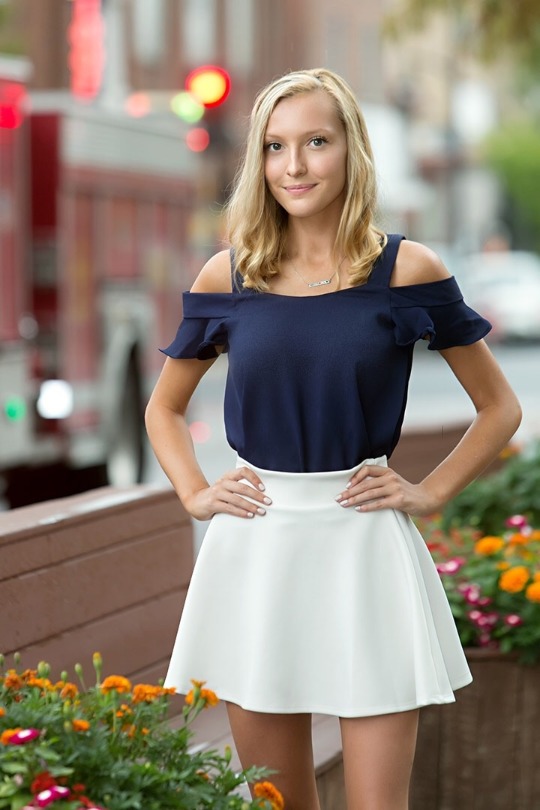Honored Kid Zoe was diagnosed with acute myeloid leukemia when she was a teenager. Now, almost four years after finishing treatment and getting the news that the cancer was gone, Zoe is taking a look at what she’s learned during her cancer — and cancer-free — journey.

Honored Kid Zoe Wagner is now 19 years old and has been cancer free for four years.
The anticipation of upcoming milestones and the overall exploratory nature of the teenage years make the age of 15 a common time to be naïve – and naive I was. Life was simple and my carefree spirit allowed me to believe it would always be that way. This trusting nature also led me to ignore the severity of the disease symptoms I was having for months. As these symptoms got worse, my uncomplicated mind created uncomplicated explanations for the way I was feeling. I told myself that I was always tired because I was a teenager, and that this exhaustion was the cause of my daily headaches. I blamed my newly heavy periods on ordinary hormonal changes, bruising on being clumsy, unusually pale skin on it simply not being sunny enough out, and weight loss on, well, it happens. It wasn’t until red needle-prick like dots appeared all over my legs that I requested to go to the doctor.
The physician was relatively unconcerned and explained that shifting hormones were most likely the root cause of my troubles. She ordered a blood test and told us not to worry in the meantime. We left the office free of hesitation or concern, but our demeanors changed when my mother received a phone call later that night from the pathologist urging me to go to the emergency room immediately. The next morning, after a whirlwind night of frightening tests and procedures, I was diagnosed with acute myeloid leukemia. Suddenly, life wasn’t so simple.

Zoe rests in bed with a canine companion during a hospital stay.
The next six months consisted of numerous blood transfusions, bone marrow extractions, spinal taps, chemotherapy rounds, fevers, sepsis infections, PICU admissions, and long stays in the hospital. Overcome with anger, sadness, and denial, I knew that I couldn’t rely on my emotions to cope like I once had. Like my emotions, my life lacked any sort of consistency. I recognized this early on and decided I needed something reliable to better handle my diagnosis mentally. I had so many questions that my heart alone could not answer.
When I was diagnosed, the first thing I wondered was, “Why did this happen to me?” Everyone seemed to have different answers. Some would say it was just bad luck, others that the biggest battles were given to the strongest people, and many explained that everything happens for a reason. While all these answers were valid in their own way, I couldn’t wrap my head around any of them. In search of something I could better understand and depend on, I turned to data and facts. I began asking my doctors complex questions, reading the details on my pill bottles, and staying up late researching medical journals about my disease.

Zoe holds a sign declaring her cancer-free status.
Defending myself from uncomfortable feelings, I disconnected from my emotional reality by putting all my focus on learning about things like chemotherapy and clinical trial outcomes. Some may see this as a strange coping mechanism, which brings to light one of the most important things that I’ve learned over these past few years – there is no right or wrong way to cope with the impact of childhood cancer. Being a childhood cancer survivor is my reality. Through this reality, I have slowly learned that it’s important to find a happy medium between healing both my body and my mind.
The harmful effects of chemotherapy left me with many facts I must keep on my radar. Being a survivor means that I will never be as physically healthy as someone who never had childhood cancer. I have dealt with, or will deal with, learning disabilities, infertility, a high risk for secondary cancers and organ failure, and a heart that must work harder than usual to pump the blood I need. As for the emotional side of being a survivor, most days are good, very good, in fact. August 19 will mark four years cancer free and that will be one of those very good days.

Zoe is heavily involved in the childhood cancer community and is a huge advocate for childhood cancer research. Photo Credit: Kim Wade, SilverBox
My survivorship has given me a sense of humble pride, humility and purpose that I don’t think I would have without such a great victory under my belt. Every once in a while hard days do happen, and being a survivor feels more like having an itch I can’t quite scratch or a bad dream I can’t seem to shake. Altogether, each day is different and each day is worth it. The emotional side of healing will always be somewhat tricky for me, but the continuous support I have from the childhood cancer community never fails to remind me that I have an army in my corner. Being a survivor has made my life more complex than I ever imagined, but has also filled it with more love than I ever thought possible.
The effects of childhood cancer are lifelong — but they don’t have to be. Fund the best research today and give childhood cancer survivors the chance to live full, healthy lives.

 SBF
Tweets »
SBF
Tweets »